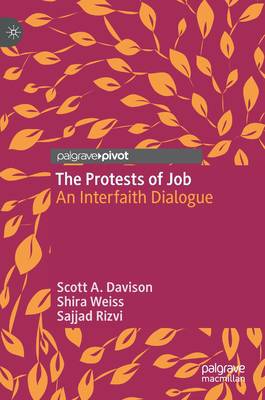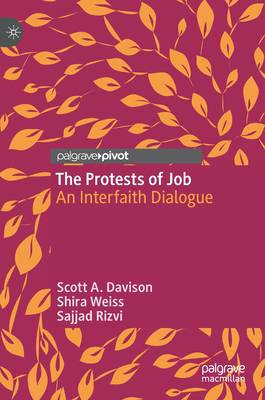
- Afhalen na 1 uur in een winkel met voorraad
- Gratis thuislevering in België vanaf € 30
- Ruim aanbod met 7 miljoen producten
- Afhalen na 1 uur in een winkel met voorraad
- Gratis thuislevering in België vanaf € 30
- Ruim aanbod met 7 miljoen producten
The Protests of Job
An Interfaith Dialogue
Scott a Davison, Shira Weiss, Sajjad RizviOmschrijving
This book explores the protests of Job from the perspectives of Jewish, Christian, and Islamic religious and philosophical traditions. Shira Weiss examines how challenges to divine justice are understood from a Jewish theological perspective, including the pro-protest and anti-protest traditions within rabbinic literature, in an effort to explicate the ambiguous biblical text and Judaism's attitude towards the suffering of the righteous. Scott Davison surveys Christian interpretations of the book of Job and the nature of suffering in general before turning to a comparison of the lamentations of Jesus and Job, with special attention to the question of whether complaints against God can be expressions of faith. Sajjad Rizvi presents the systematic ambiguity of being present in monistic approaches to reality as one response to evil and suffering in Islam, along with approaches that attempt a resolution through the essential erotic nature of the cosmos, and explores the suggestionthat Job is the hero of a metaphysical revolt that is the true sign of a friend of God. Each author also provides a response essay to the essays of the other two authors, creating an interfaith dialogue around the problem of evil and the idea of protest against the divine.
Specificaties
Betrokkenen
- Auteur(s):
- Uitgeverij:
Inhoud
- Aantal bladzijden:
- 110
- Taal:
- Engels
Eigenschappen
- Productcode (EAN):
- 9783030953720
- Verschijningsdatum:
- 7/05/2022
- Uitvoering:
- Hardcover
- Formaat:
- Genaaid
- Afmetingen:
- 148 mm x 210 mm
- Gewicht:
- 294 g

Alleen bij Standaard Boekhandel
Beoordelingen
We publiceren alleen reviews die voldoen aan de voorwaarden voor reviews. Bekijk onze voorwaarden voor reviews.











